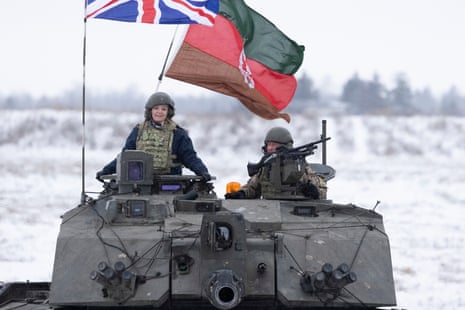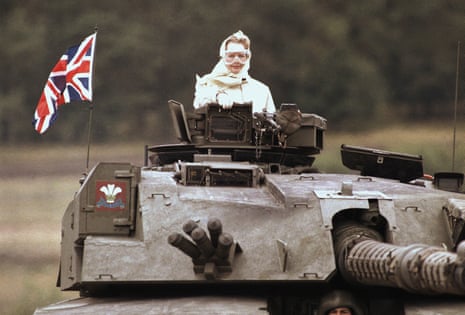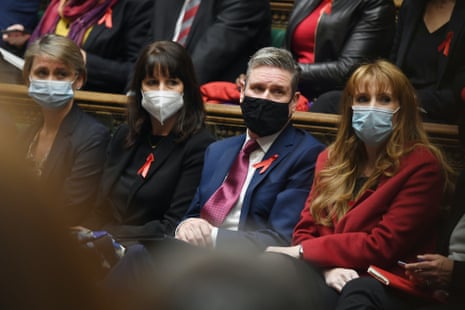Early evening summary

This live blog is now closed. For the latest coronavirus news from around the world, you can head to our global Covid blog

David Lammy, the new shadow foreign secretary, has criticised Liz Truss for posing for a photograph on a tank while on a visit to Estonia yesterday. In an interview with Radio 4’s PM programme, he said:
As I come into this brief, real concerns with Ukraine, Belarus, issues with China, Iran, I’ve got to say the photo ops are not where this is. So I was surprised to see Liz Truss attempting her best impression of Margaret Thatcher.
I just think these are very serious times and one’s got to approach the job very seriously. That got the comment it did for very obvious reasons; that she took her time out, frankly, to evoke an image that seemed more to do with appealing to a small section of the Conservative party and not really the country.
Lammy was referring to Truss’s ill-disguised leadership ambitions. According to the latest ConservativeHome survey of party members, Truss is rated more highly than any of her cabinet colleagues by Tory members, and she has held the top slot in this regular survey now for a year.
Here is the Truss image from yesterday.

And here is the iconic Thatcher picture that Truss seemed to be referencing.

The BBC has spoken to someone who attended the party at Downing Street on 18 December reported by the Daily Mirror this morning. (See 9.30am.) According to the BBC, the source said “several dozen” people were there, food and drink were laid on, people played party games and the event went on until past midnight.
After @PippaCrerar and @danbloom1 scoop this morning, we're told by an attendee of drinks in No 10 on Dec 18th that there were 'several dozen' people there, with food, drink and games which went on past midnight... https://t.co/42taDI3SKu - No 10's said all rules were followed
— Laura Kuenssberg (@bbclaurak) December 1, 2021
Maroš Šefčovič, one of the European Commission vice-presidents, has told members of Northern Ireland’s legislative assembly (MLAs) that the UK should “reciprocate” the efforts made by the EU to compromise in the talks on the Northern Ireland protocol.
Giving evidence to the assembly’s executive committee, Šefčovič said:
Our proposal will deliver significant changes, they amount to a new model for the implementation of the protocol and can deliver a real difference for all people and businesses in Northern Ireland.
We made an important move towards the UK with far-reaching proposals for solutions, we need the UK government to reciprocate this now, we have no time to lose, and what is most pressing is the need to ensure continued supply of medicines from Great Britain to Northern Ireland.
Commenting on the latest Omicron variant figures (see 3.38pm), Sajid Javid, the health secretary, has said he expects cases to go up.
As I’ve said recently, we do expect cases to go up ....
Our strategy is all about buying time, buying time so that we can assess it, but also [so] that we can build our defences and we’ve been really clear in the last few days, I think, that the best way to continue to defend ourselves is through our fantastic vaccine programme.
These are from Andrew Harrop, general secretary of the Fabian Society, the Labour thinktank, on the social care white paper.
This is just embarrassing
— Andrew Harrop (@andrew_harrop) December 1, 2021
There are three BIG problems with social care:
- can’t get care when you need it
- can’t get sufficient hours of care
- rates paid for care too low
This White Paper tackles none of them https://t.co/9IrXYGgZi2
Trying to be positive…
— Andrew Harrop (@andrew_harrop) December 1, 2021
The aspirations on extra care and housing adaptations are welcome but on a tiny scale compared to the need
This @thefabians paper sets out the scale of the challenge https://t.co/89kdf09QKw
The latest edition of the Guardian’s Politics Weekly podcast is out. As the PM contradicts his own scientists, Jessica Elgot and Gaby Hinsliff discuss the government’s response to the new Covid-19 Omicron variant. Plus: is Keir Starmer’s new shadow cabinet an election-winning Labour team? Starmer’s former director of communications Ben Nunn gives us his take in an exclusive first interview since he resigned last summer.

The government wants schools in England to remain open right up until the end of term and has rejected union proposals for early closure before Christmas to act as a Covid circuit-breaker.
Will Quince, minister for children and families, told MPs on the Commons education committee that individual schools and directors of public health would be monitoring the situation locally, but said the government plan was for schools to remain open.
The NASUWT teachers’ union in Northern Ireland has suggested that schools close early in the run-up to the Christmas holidays because of a spiralling teacher shortage due to sickness and Covid-related absence.
The committee heard that some schools in England have also been forced to send children home to study online because of staff absence. Quince insisted however: “The position of the government is we want all education settings open.”
He also defended the introduction of masks in communal areas in schools as a precaution, after MPs questioned the efficacy of face coverings in school settings, their impact on education, and the fact that children were being asked to wear masks when office workers were not.
Quince was also asked about school nativity plays which appear to have become central to backbench concerns about children enjoying a full school experience, and said any cancellations were “deeply regrettable”. He said:
Unfortunately as MPs we very rarely get to go to our children’s but often get to see them online, but they are wonderful, wonderful things. But there will be some areas where there is a higher prevalence of transmission.
The directors of public health guidance will say, ‘Look, actually, big gatherings probably isn’t the right thing to do.’ Or, ‘If you’ve got parents coming into school to watch a play, wearing a mask might be a sensible precautionary measure.’
So I think, ultimately, on balance, it comes down to trusting schools and headteachers and directors of public health.

Jeremy Hunt, the Conservative chair of the Commons health committee, has described the white paper on adult social care published today (see 1.33pm) as a “disappointment”. In a statement issued on behalf of the committee, which is cross-party, but with a government majority, he says:
This is a disappointment given the extent of the crisis in social care and the predicament of people whose quality of life is dependent on a solution being found.
Providing an additional £1.7bn in funding over three years falls far short of the annual £7bn sum that our evidence found would be necessary to fix social care. The white paper states that it provides an ‘ambitious 10-year vision’, but it doesn’t acknowledge the scale of extra resource needed to realise that vision, based on the crisis the sector faces right now.
The government deserves credit for grasping the nettle of social care reform, and no one can argue with the laudable aims of providing choice, quality and fair access. However, these plans represent three steps forward and two steps back. Though there is progress with a cap on care costs, it could have gone further. Failures in social care will continue to put pressure on our overstretched hospitals with patients who cannot be safely discharged exacerbating the winter crisis and thousands of people will not get the care they need because the carers do not exist.
Organisations linked to employers, workers and users in the care sector have welcomed particular aspects of the white paper, and there is praise for the government for at least addressing the issue. But overall many of the comments released about the white paper echo what Hunt said about the contents being disappointing overall.
Frances O’Grady, the TUC general secretary, said the white paper did not address the key problems. She said:
Britain needs high-quality care and high-quality employment for those providing it. But the biggest problem for both care users and the burnt-out workforce is the staffing crisis caused by a generation of underfunding, fragmentation and privatisation.
A credible plan for social care must transform the pay and conditions of the workforce. But the white paper fails to do that. And it has no answers for care workers who want to know when they will get a secure contract and a living wage.
Helen Walker, the chief executive of Carers UK, said:
We welcome the announcements of £25m to work with the sector to improve services to support unpaid carers, the £30m to help local areas innovate services, and £150m to drive adoption of technology across the sector. These all have potential to improve the experiences of unpaid carers. The proposals to encourage digital technology, improve data collection and sharing of data could all make carers’ lives easier.
However, many unpaid carers tell us they are at breaking point, exhausted and on their knees after more than 18 months caring with little or no outside support right now. Seventy-two percent have not had a break at all from caring since the start of the pandemic. We are concerned that there is no substantial funding to enable carers to take the breaks they desperately need.
Sally Warren, the director of policy at the King’s Fund, a health thinktank, said:
The overall vision in the white paper is the right one and if delivered could significantly improve the experience of people receiving care and those who work in the sector. However, the steps outlined don’t go fast or far enough to achieve this vision and the funding allocated to deliver it is insufficient. In particular, although there are some welcome commitments on training and skills for staff, there is little to tackle poor workforce pay and conditions and high vacancy levels in the sector.
Martin Tett, adult social care spokesperson for the County Councils Network, said:
Proposals to digitalise social care, a greater emphasis on supported housing, policies on workforce recruitment, and a person-centred care service are what the County Councils Network has called for.
However, while CCN supports many of today’s proposals, we remain concerned that the amount of funding committed so far falls short of the ambitions laid out.
And Rachel Harrison, national officer at the GMB union, said:
This is like groundhog day. Care workers have been waiting for the government’s plan for years – since before the last election. Now they’re being told they have to wait even longer for any substantial reforms.
You don’t have to be Einstein to realise addressing pay for carers is the absolute number one priority to tackle the catastrophic understaffing crisis – a crisis which will only get worse.

The Metropolitan police have issued this statement about the intruder at the Palace of Westminster earlier. (See 3.08pm.)
At around 15:00hrs today, 1 December, a man was detained and arrested at Carriage Gates inside the Palace of #Westminster on suspicion of trespassing on a protected site. The arrest is not terror related. pic.twitter.com/BoFkvF0AqJ
— Metropolitan Police (@metpoliceuk) December 1, 2021
Comments (…)
Sign in or create your Guardian account to join the discussion